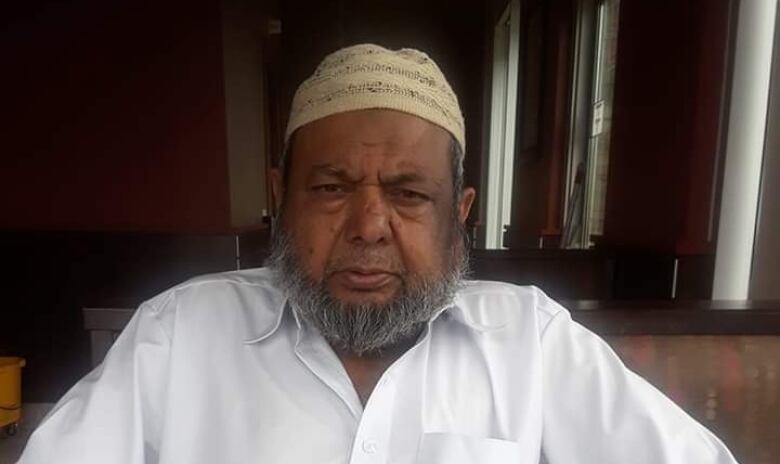Systemic racism must be rooted out of mental health services, too — not just police, says advocate
Counsellors must recognize how racism factors into mental health: Aseefa Sarang

Canada's largest mental health teaching hospital has called for an end to police involvement in mental health checks, after three people with histories of mental health problems were killed by police in separate incidents across the country in the last month.
But Aseefa Sarang said mental health care must root out its own problems with systemic racism, as well.
"When we speak to our clients, we understand that when they speak about their experiences of racism or any form of discrimination, counsellors are really unable to contextualize that in terms of the person's lived experience," Sarang, executive director of Across Boundaries, told Day 6 host Brent Bambury. The organization provides mental health services to people from Black, Indigenous and other non-white communities.
She recalled stories from clients who have said counsellors may dismiss experiences related to racism, from casual micro-aggressions from coworkers to being repeatedly stopped or random checked by police.
"Sometimes, they said, 'You know what? You might have just been imagining it,'" she said.

"If a counsellor is unable to contextualize that, to connect to the client around those particular pieces, then they are unable to make the connection that requires trust, which is the first step in terms of the person's recovery."
On Tuesday, the Toronto-based Centre for Addiction and Mental Health (CAMH) threw its support behind mounting calls to remove police officers from the front lines for people in mental health emergencies.
The call follows a string of deaths, including Ejaz Choudry in Mississauga, Ont., Chantel Moore, 26, in Edmunston, N.B., and Rodney Levi, 48, in his First Nation community in New Brunswick following encounters with police.
Choudry, a 62-year-old father of four with schizophrenia killed by police after his family called a non-emergency line.
"Police should not be first responders. Police are not trained in crisis care and should not be expected to lead this important work," CAMH said in its statement.
A CBC investigation in 2018 found that of the 461 people who died in interactions with Canadian police between 2000 and 2017, 42 per cent were reported to be mentally distressed.

When and how should police be called?
Advocates, spurred by protests against racism and police brutality in the United States as well as Canada, have called for reforming or defunding — and in some cases abolishing — police forces and redirecting funds into other services, such as social workers and those trained to deal with mental health crises.
Sarang said, however, that this ultimatum can be "a simplistic view of the whole problem," and any reallocations will require careful planning and consultation with Black communities and other people of colour.
Representatives at Across Boundaries ensure that if they're involved in a mental health check that requires a police presence, they also insist that a mental health worker is also on site to help de-escalate possible violent confrontations, she said.

This week, Toronto Mayor John Tory proposed that police should stay out of these situations unless there is a weapon involved.
Sarang cautioned that such a rule would need further consideration, pointing to the case of Choudry, who carried a pocketknife because he felt police "were out to get him," according to his nephew Hassan Choudhary.
"He had a small knife. And he was a frail, elderly person. He wasn't a threat to anybody," said Sarang. "So the response was way out of proportion. And that is why I feel that if the tipping point is, 'Oh, the person has a weapon,' then that is a problematic point."
She was cautiously optimistic about Tory's call to reform Toronto's police force, including the creation of a new non-police response team for calls that do not involve weapons or violence.
"That's a great first step. However, it's a step that's come a lot later than it should have come," she said.
"We cannot continue to say: 'How many more?' We have to get to the point where we say just simply, 'No more.'"
Written by Jonathan Ore with files from CBC News. Produced by Rachel Levy-McLaughlin.
To hear more, download our podcast or click Listen above.
